|
At the Meaningful PE Symposium this past May, Dr. Justen O’Connor outlined a compelling contrast between formal and informal sport during one of the most thought provoking presentations in recent memory. In formal sport, decisions are largely made by governing bodies, who (using cross country running as an example) decide on how students should be grouped (by age and gender) and which distance they should run. Whereas in informal sport, decisions are largely made by participants who might decide which route they run, when they want to run, or consider which route will allow group participation. This is an oversimplification of Dr. O’Connor’s presentation, but wished to give credit where it is certainly due. The purpose of this blog is to summarise how our MS department has attempted to apply these ideas through the lens of MPE.
Our school has a rich tradition of formal running (i.e. Cross Country) and boasts a number of provincial championships. Traditionally, the Middle School (Grade 7-9) PE program has aimed to connect kids with these formal sport opportunities. In PE classes, students previously trained for an in-school meet where they would run the distance that was assigned to their age/gender by our governing body. The top students from that meet are invited to divisionals, to zones and so on. While formal sport is certainly meaningful to some students, over the past few years we’ve recognized that this is not necessarily inclusive or engaging of all students. Should a PE program be devoted to leading students towards formal sport participation that is unable to include all of them? In our Elementary School, attempts to reconcile this dilemna has led to the creation of a Who We Are Outdoors unit, as an attempt to help students find more meaning in the outdoors by exploring other activities besides running. We have been reluctant to take a similar approach with the Middle School, because we still see running as an activity that students can participate in across their lifespan. But, how can we do that in a way that is more meaningful to all students? Fortunately, one of many beautiful things about the MPE framework, is there is not only one way to apply it. We began by using the TARGET PE model as a way to reflect upon our previous approach to this unit. Not surprisingly, as we were heavily aligned with a formal sport offering, much of the unit design was ego-oriented. Task and authority were controlled tightly by the teacher (as influenced by the governing body), students had very little autonomy in the challenges they wished to pursue. Recognition was given to students based on rank, classes were grouped based on their formal sport designations (gender / age) and the timing of the unit was built around the formal sport calendar (i.e. ensuring our in school- -meet was done in time to get kids qualified for the divisional meet). Moving ForwardLooking to move forward, one of the first things we discussed as a group is “why”, why do we believe students should run? Not surprisingly, the answer really wasn’t about supporting formal sport or winning trophies - it was because we wanted students to challenge themselves. With that in mind, we wanted to be intentional about the unit, and specifically renamed it so - "challenge". In our initial lessons, we presented our learning goal (below). Students began by running a short route, and self-assessing themselves based on a rate of perceived exertion. We discussed with students ‘how they knew’, and encouraged them to listen to their bodies. From there, we co-created the success criteria with students, by asking them at which point they felt they began to step outside their comfort zone. They identified that at about a ‘7’, they started to get a bit uncomfortable so that’s what we went with.
At different intervals, we would ask students to identify what it is they were struggling with most in relation to trail running (below). As we had two classes and two teacher's at the same time, we offered different ‘workshops’ to support students' needs. For the main event, we transformed our traditional formal school meet, to appear more similar to a community running event. Students chose the distances they wished to run, and students were no longer grouped by grade or gender. We added in a relay option, where students would run 2km and then tag off with a friend. Rather than mass-starting runners where it becomes very evident who is last, we decided to wave or corral start. We removed placing / ranking as being a qualifier for our XC team so students could focus on their approach to challenge and not stress about how they might compare to others. Prior to the event, students set goals related to their participation, some just wanted to finish, some wanted to improve on a previous year's time, some wanted to have fun, and some wanted to finish near the top. As the event drew closer, student participation became more autonomous, as students worked towards their individual goals. Rather than waiting for a teacher to give them an ‘official time’ students would arrive, pick up a wrist stopwatch (if they wanted), report to a teacher and off they went on the route of their choice. WAS THIS APPROACH SUCCESSFUL? We considered this unit as an 'experimental' unit, and thus wanted to correlate the data from numerous sources to determine it's success. In addition to student performance and reflections discussed below, qualitative survey data and focus group data, has not yet been collected at this time but will be in the coming weeks. Student Performance: One area of concern within the department related to what impact would offering students choice have on their performance? In theory, they might very well enjoy the unit more than previous years, but if students just opt for the easiest challenge and don't actually demonstrate persistence themselves, is that defeating the purpose? So, after the event, I crunched the numbers from the 4 previous years of races, and looked at performance across similar grade levels as well as performance of the individual sudents across multiple (I will term the 3 previous years as formal sport years, and the version above as the MPE year).
Student Reflections: At the end of the unit, students completed a private reflection. I provided some sentence stems that I 'borrowed' from one of Mel Hamada's blogs (thanks, Mel!).
Some responses from my one of my classes below: I have changed my thinking about running because last year I just ran because I had to but now I actually enjoy running I was able to cut my time down by 5 minutes. Even though it may not seem like a major difference but to me that is a lot because in grade 7 I’m pretty sure my first ever time was 25-27 minutes and I’m very proud that I was able to start being quicker. I have changed my thinking about what a successful run is because at first I kept comparing my times to others to decide whether I was proud of myself or not and now I compare my times to my own times and I am just trying to achieve a personal best. I also improved on my persistence by a lot. I got better at not stopping to walk when I got a cramp and it improved my time a lot. I am proud of myself because I never thought I was a good runner or that I could run. Now I know that if I try my best and push myself every run I can get better. I have changed my thinking about my abilities, as now I have experienced Race Day, I know what I really am capable of, and know I can be so much more. When I think about this Unit and what I have learned, I feel that if you “feel” like you are outside of you comfort zone, you can push through so much more, and achieve the unthinkable. ...but what about the formal sport?Our approach is this unit was never anti-formal sport. Formal sport has a lot of meaning for some of our students, but wasn't engaging or inclusive of every kid. Our aim was to connect students with challenge, allow them to make some choices in their participation, celebrate the success of each individual and hope to foster a connection to running that students can take with them in the future. A purpose which we see as serving the needs of every student, regardless of whether they intend to compete in formal sport or not. But wouldn't you know it, with this new approach and removal of the ranking system for qualification - the # of students interested in our formal sport team has never been higher! After the conclusion of our school event, we had over 110 students (more than 50% of our MS population) who chose to compete in the divisional meet, the largest runner population of any school (despite being half their size). This past week, that group went on to compete in the Zone championship and won it (as high as it gets for us in Middle school).
While there is still data to collect and sort through - prioritizing meaningfulness and shifting away from feeding formal sport in our PE classes, has neither jeopardized performance or formal sport in anyway, while also importantly better serving all our students. Sometimes, you can have your cake and eat it too (I think).
0 Comments
|
AuthorWrite something about yourself. No need to be fancy, just an overview. Archives
November 2023
Categories |
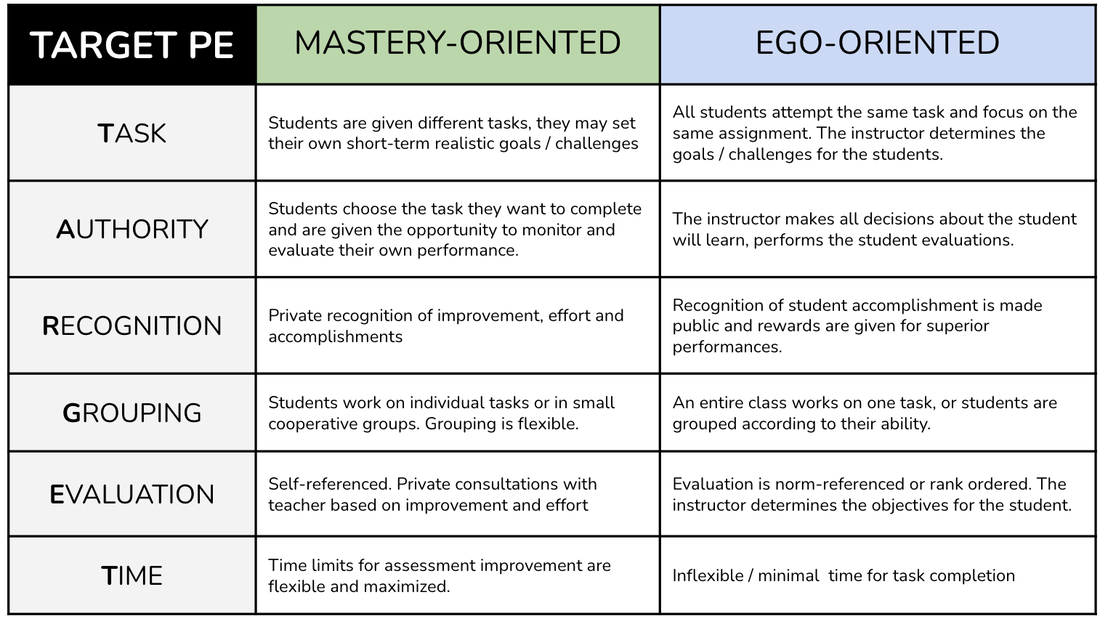
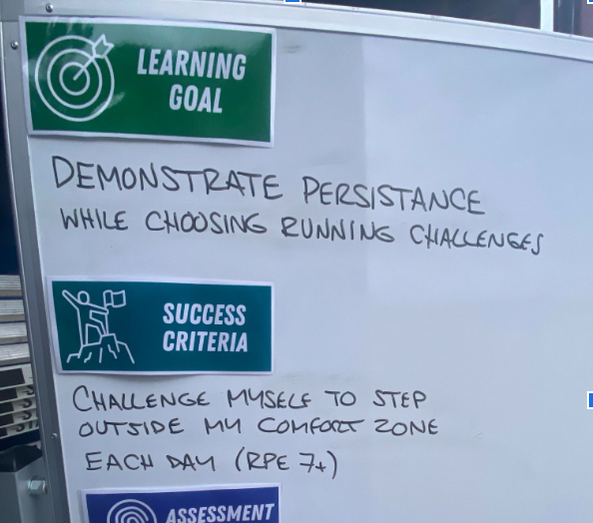
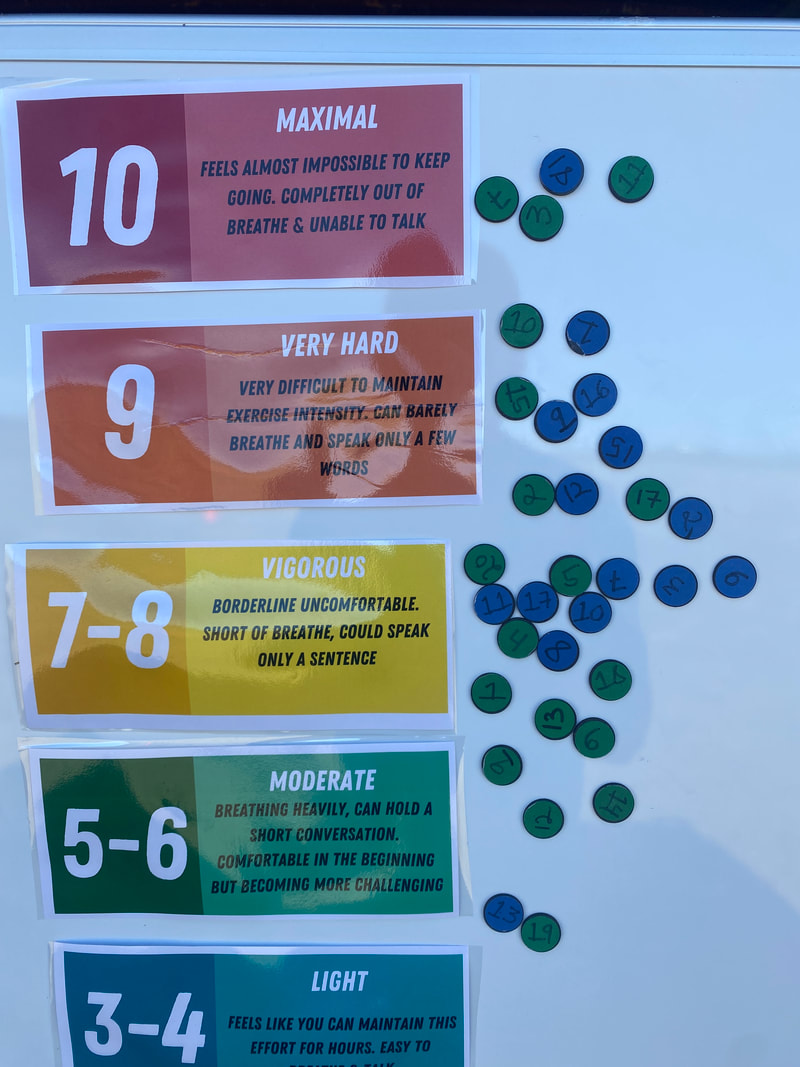
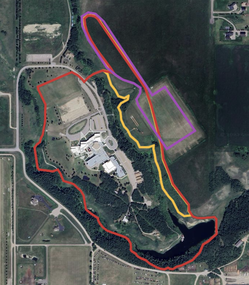
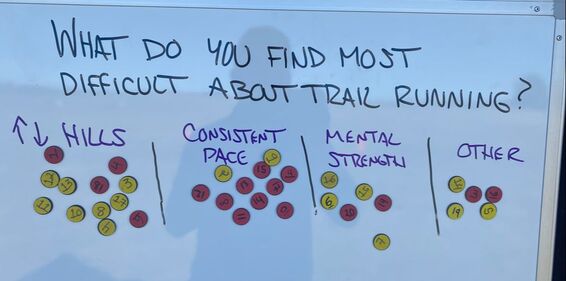
 RSS Feed
RSS Feed
